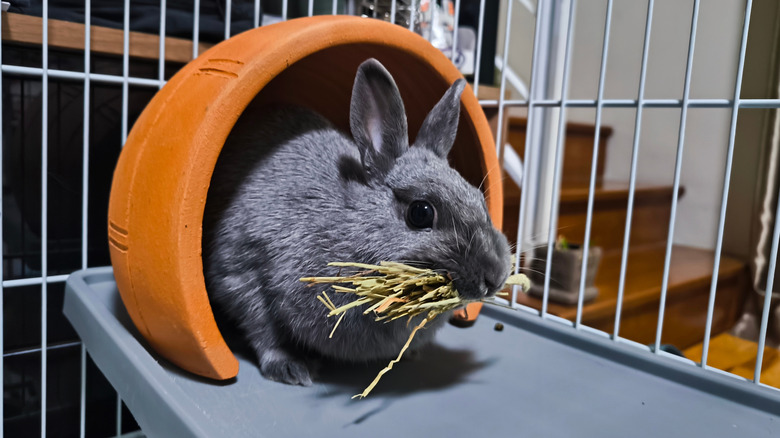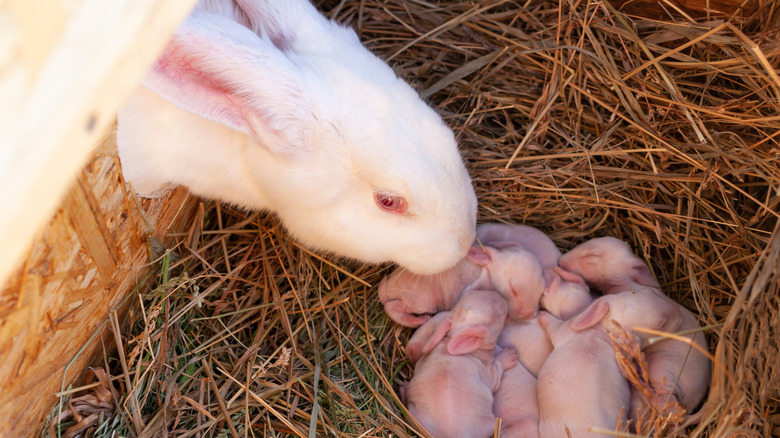Is Your Rabbit Pregnant? Here Are The Signs To Watch Out For
If you've ever heard the expression "breeding like rabbits," then you won't be surprised to learn how rabbits reproduce: quickly and frequently. Does (female rabbits) get pregnant easily, have a gestation period of roughly one month, produce up to 12 babies at a time, and can get pregnant again almost immediately after giving birth. But, as with detecting when a rabbit is in heat and ready to breed or when a rabbit is in labor, it can be challenging to figure out when a doe is actually pregnant.
You might assume that a mother-to-be will display a growing belly, but pregnant rabbits often lack the swollen stomach common with other pregnant animals. It's possible but not certain that you'll be able to feel telltale bumps in the doe's stomach about two weeks into the pregnancy. To confirm the pregnancy, you should get a vet to perform an ultrasound, but the most easily detectable signs that a rabbit is expecting are changes in her everyday behavior.
Behavioral changes in a pregnant rabbit
About halfway into her pregnancy, a doe may act moody or grumpy, showing territorial or defensive behaviors. Similar to humans and other mammals, she may also have an increased appetite, as she needs to nourish her growing babies. She may act aggressive toward you, even growling at you when you try to pet her.
A week before delivering her kits (baby rabbits), the pregnant doe usually starts to display nesting behavior, using bits of hay, paper, loose bedding, and other soft materials to create a welcoming spot for her soon-to-be-born brood. One to three days before giving birth, she will likely start to pull out her own fur — plucking loose bits of fluff from her abdomen, chest, and flanks — and add it to her cozy nest. It should go without saying that after a doe does give birth, the babies need to be separated by sex as soon as possible — unless you want them also "breeding like rabbits."
It's worth noting that intact female rabbits that aren't pregnant sometimes display this nesting behavior as well. Pseudopregnancies (also known as false or phantom pregnancies) occur because of ovulation and the resulting fluctuations in hormone levels. Spaying a doe should put an end to repeated pseudopregnancies and help you delineate signs of real pregnancies in your fur baby.

